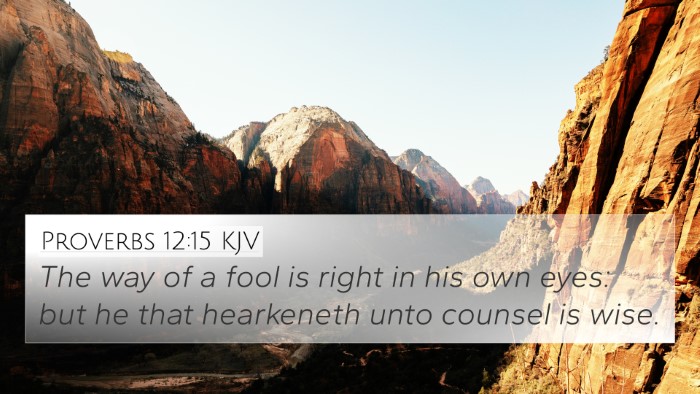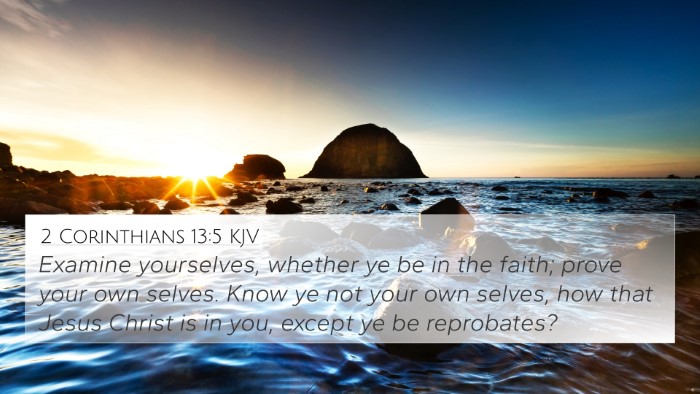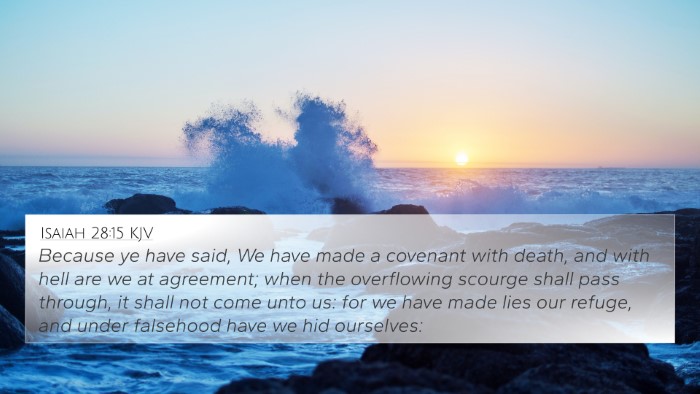Understanding Proverbs 16:25
Proverbs 16:25 states: “There is a way that seems right to a man, but its end is the way of death.” This profound verse highlights the dangerous nature of human judgment when divorced from divine wisdom. Below, we will explore insights from various public domain commentaries to unravel the depth of its meaning.
Verse Analysis
This verse serves as a critical warning about misguidance. It portrays the false sense of security found in self-reliance and emphasizes the necessity of seeking God’s counsel.
Key Themes
- Human Fallibility: Men often believe they are on the right path, yet this belief can lead to destruction.
- Divine Wisdom vs. Human Wisdom: God’s understanding surpasses human reasoning, as reiterated across scripture.
- The Consequences of Choices: Every choice has a consequence; choosing one’s way over God’s way can have life-ending implications.
Commentary Insights
Matthew Henry's Commentary
Henry emphasizes that this verse serves to remind individuals of the danger in relying on their understanding. He points out that the ways of men may seem right but can lead to literal spiritual death if not aligned with God’s commandments.
Albert Barnes' Notes
Barnes discusses the misleading nature of human judgment. He elaborates on the distinction between apparent righteousness and true righteousness that aligns with God’s will, stating that many are on a path that seems just, yet leads to destruction.
Adam Clarke's Commentary
Clarke focuses on the ultimate outcome of misguided paths, noting the importance of discernment when following one’s heart. He suggests that this verse encourages a thorough examination of one’s life choices in light of God’s larger plans.
Bible Cross References
Proverbs 16:25 connects deeply with several other scriptures, expanding its meaning through thematic links:
- Jeremiah 10:23: “It is not in man that walketh to direct his steps.” This reinforces the idea that humans cannot determine their paths without divine direction.
- Proverbs 14:12: “There is a way that seemeth right unto a man, but the end thereof are the ways of death.” This is a direct echo of the message found in Proverbs 16:25, emphasizing the theme of misguided paths.
- Isaiah 53:6: “All we like sheep have gone astray; we have turned everyone to his own way.” This illustrates the universal propensity of humanity to stray from God's intended path.
- James 1:5: “If any of you lack wisdom, let him ask of God.” This promises divine guidance to those seeking wisdom, reinforcing the necessity of relying on God.
- Matthew 7:13-14: The narrow gate and the wide way teach the importance of choosing the right path, aligning with the caution given in Proverbs 16:25.
- Proverbs 3:5-6: “Trust in the Lord with all thine heart; and lean not unto thine own understanding.” An admonition to seek divine guidance instead of relying solely on human wisdom.
- Romans 8:6: “For to be carnally minded is death; but to be spiritually minded is life and peace.” This reinforces that aligning with God leads to life, in contrast to the death seen in the misguided paths of the flesh.
Thematic Connections
The verse establishes a critical dialogue between human wisdom and divine insight, evident in many parts of the Bible. Understanding the interplay between these verses is essential in grasping the overarching biblical narrative regarding the nature of God versus humanity.
Tools for Bible Cross-Referencing
Utilizing tools for Bible cross-referencing aids in deeper understanding and exploration. Some recommended methods include:
- Bible Concordance: A helpful guide for finding verses and connections.
- Cross-Reference Study Guide: A structured resource to identify thematic links.
- Scriptural Cross-Referencing Techniques: Methods to navigate and connect various scriptures for comprehensive understanding.
Conclusion
Proverbs 16:25 serves as a potent reminder of the frailty of human judgment and the assurance that seeking divine wisdom is essential for choosing the right path in life. Engaging with related verses and utilizing biblical resources can enhance understanding and encourage reflection on one’s life choices in light of God's commandments.










